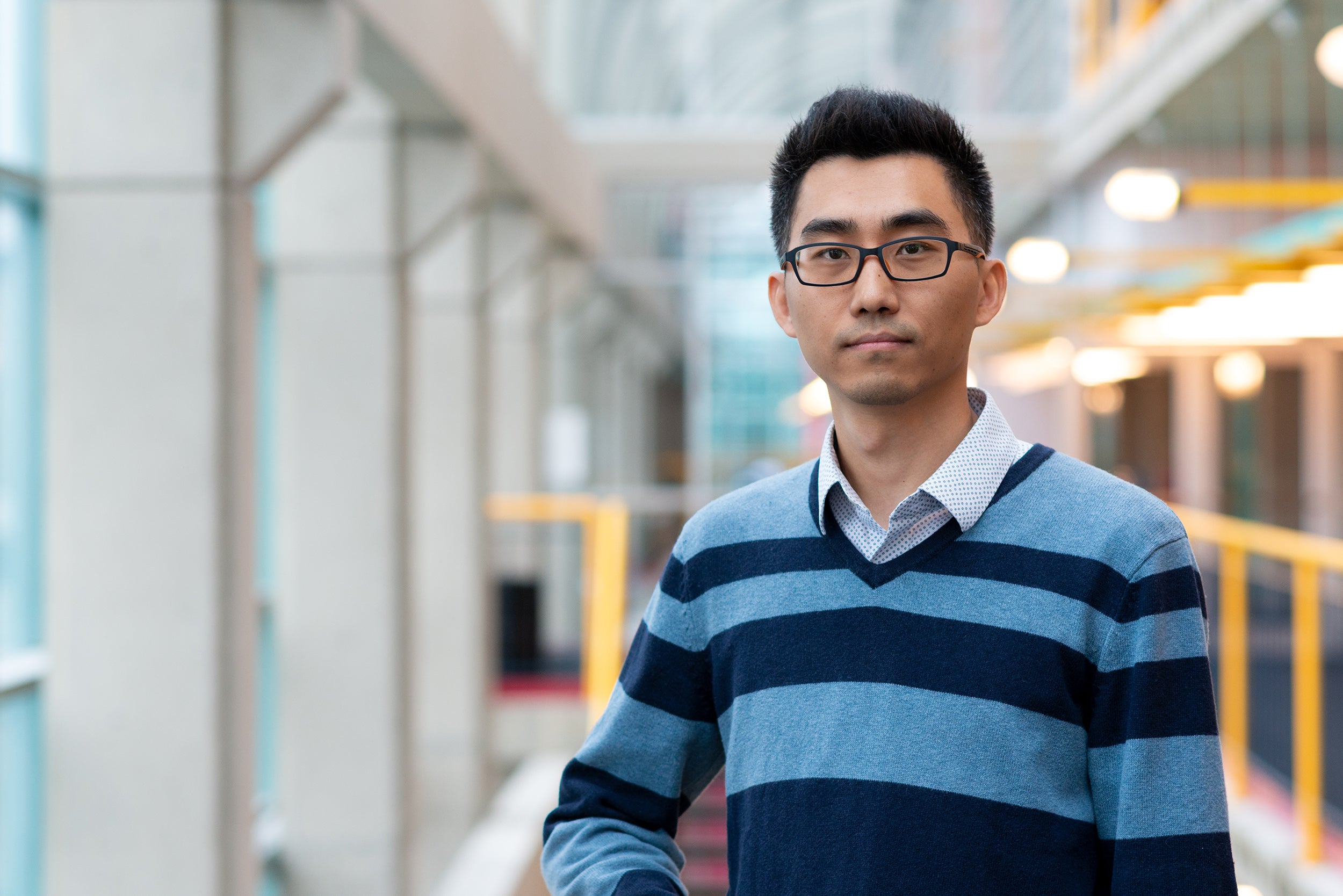Professor Jian Zhao has received an Ontario Early Researcher Award, which will provide $140,000 in funding to support his research on enhancing software development through visual interfaces and generative AI. The funding from the Ontario government is matched by an additional $50,000 from the University of Waterloo, bringing total funding to $190,000 over five years.
“Our government is investing in made-in-Ontario research that will protect our economy, jobs and workers,” said Nolan Quinn, Minister of Colleges, Universities, Research Excellence and Security. “By driving cutting-edge research at our world class postsecondary institutions, hospitals, and research institutions, people in Ontario, Canada and around the world will benefit from discoveries made in our own backyard.”
Professor Zhao is one of nine researchers at Waterloo to receive a 2025 Early Researcher Award, a provincial program that recognizes exceptional young faculty by helping them expand their research team.
“Congratulations to Jian on receiving an Early Researcher Award,” said Raouf Boutaba, University Professor and Director of the Cheriton School of Computer Science. “His research is advancing human–generative AI collaboration by making software development more intuitive, productive and accessible through interactive systems and visual representations.”

Professor Jian Zhao is an international leader in the fields of information visualization (InfoVis), human-computer interaction, and data science, who develops advanced technologies to promote the interplay between humans, AI and data. He has published more than 90 peer-reviewed papers in top-tier venues across InfoVis, HCI and related fields. His work has received three Best Paper and seven Honourable Mention awards. As of May 2025, his research publications have been cited collectively more than 3,300 times, with an h-index of 32, according to Google Scholar.
Since joining the Cheriton School of Computer Science in fall 2019, he has secured more than $1.6 million in research funding from government, university and industry programs, and has established collaborative projects with major enterprise partners, among them Adobe, Meta, Cisco, BlackBerry and Unity.
About the research: Enhancing software development through visual interfaces and AI
Generative artificial intelligence and large language models are revolutionizing the way developers write, reuse and debug code, setting the stage for a revolution in software development. While automated code generation has many advantages, integrating large language models into software development workflows presents many challenges. Among them is the misalignment between the intent of a developer and the generated code, limited support for managing conversations with AI, difficulties in collaborative programming tasks, and challenges in understanding and integrating AI-generated code. At the core of these challenges is the gap between developers and AI systems, one that current visual interfaces struggle to bridge.
Professor Zhao’s project, Coding with AI: Enhancing Software Development through Visual Interfaces, aims to close that gap by designing more holistic, smooth and versatile programming environments powered by large language models. To this end, he and his team will develop novel human-in-the-loop interactive visualization techniques. By enhancing four key stages of the software development workflow — preparation, execution, cooperation and dissemination — these techniques will enable software developers to better understand, manipulate, and work with complex models and abstract concepts through intuitive, interactive visual interfaces. The outcomes of this research will contribute scientific advancements to Ontario’s billion-dollar software and computer services sectors, while supporting the recruitment, training and retention of talent.
Training the next generation of researchers
With support from the Early Researcher Award program, Professor Zhao will build a multidisciplinary research team comprised of one PhD student, two master’s students, and ten undergraduate research assistants. The doctoral student will develop the core theories and techniques to enable effective human–AI interaction and collaborative programming. The two master’s students will focus on improving information-seeking with AI tools and enhancing comprehension of large codebases. The undergraduate researchers will contribute to implementation, data analysis, and user evaluation.
All students will be trained in interaction and visualization design, data analytics, machine learning, and artificial intelligence. In addition to developing their technical and communication skills, students will benefit from Professor Zhao’s collaborations with leading industry partners — among them Meta, Microsoft, Unity, and Adobe — gaining valuable insights and potential future employment opportunities.